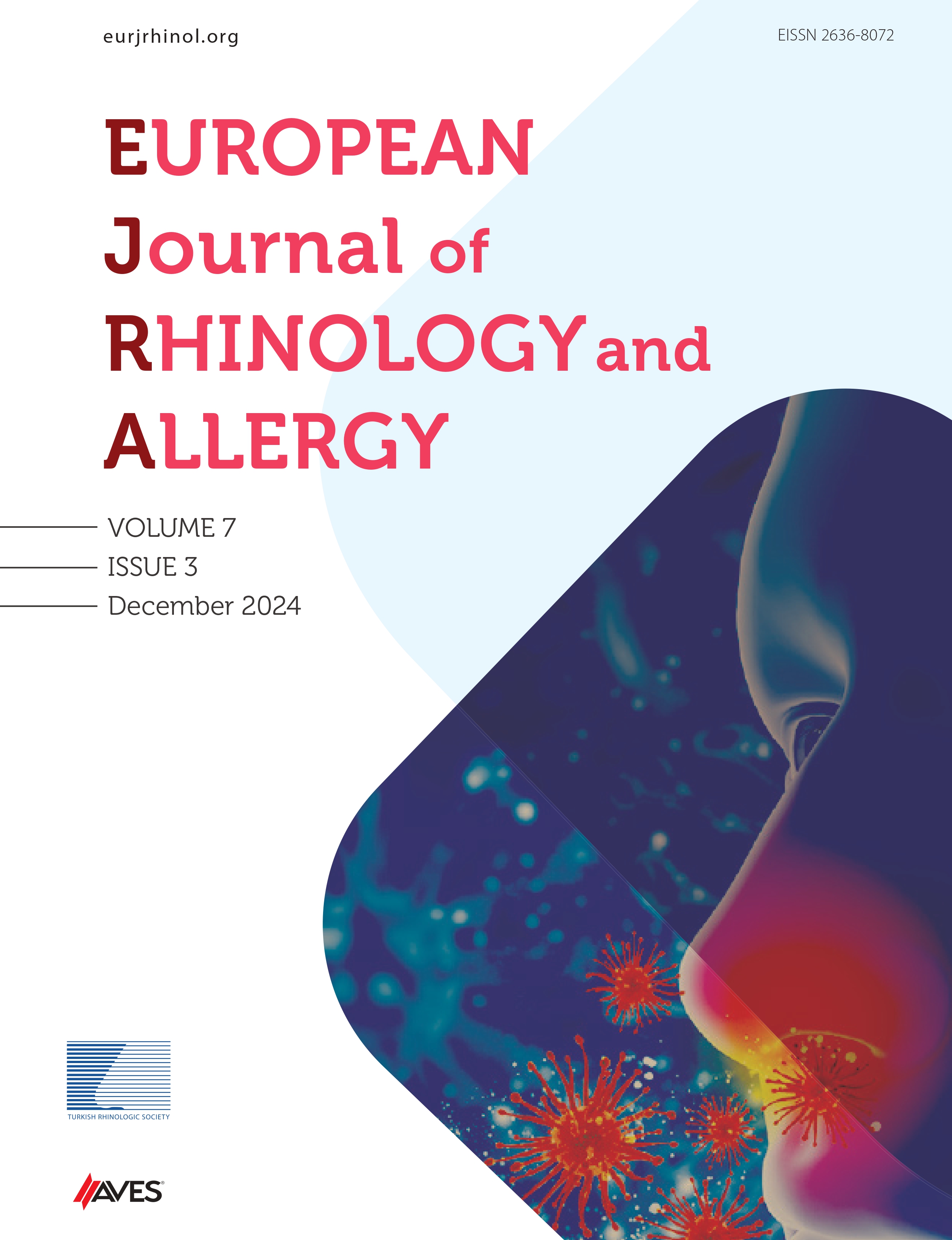Abstract
Objective: The aim of the study was to determine the effect of nasal septal deviation on serum lipids.
Material and Methods: Thirty-two patients aged 18-53 with nasal septal deviation and nasal obstruction were included into this study. Serum lipid levels were determined before and after septoplasty.
Results: There was no statistically significant difference in serum lipid levels before and after septoplasty (p=0.248, p=0.135, p=0.862, p=0.829). There was a statistically significant difference in the serum low-density lipoprotein cholesterol level between the patient and control group (p=0.024).
Conclusion: This study showed that nasal septal deviations had no effect on serum lipids, except on low-density lipoprotein cholesterol. Septoplasty can reduce the speed of atherosclerosis progression in patients with both atherosclerosis and nasal septal deviation.
Cite this article as: Karataş D, Ekinci A, Yetiş A, Özcan M. The Effect of Nasal Septal Deviation on Serum Lipid Levels. Eur J Rhinol Allergy 2019; 2(1): 13-6.

.png)

.png)